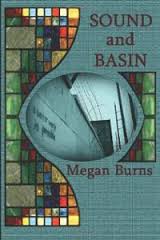A Guest Series Curated by Nicole Rollender. Intro to project here.
Call and Response: “The Days”
The late, great Jon Anderson used poetry as a vehicle for stark (and possibly uncomfortable) self-reckoning: “My prime motive for writing is self-confrontation, and I find poems the best way to employ language to do this. My poetry isn’t for everyone. It’s for people like myself who want to contend with themselves. I think of my poems as intimate conversations with close friends, to whom I’m not afraid to reveal my vulnerabilities and loneliness.” The poem, “The Days” comes from In Sepia, which was Anderson’s third book of poems. His poetry is spare and controlled – but movingly precise in emotion and observation.
The Days
All day I bear myself to such reward:
I close my eyes, I can’t sleep,
The trees are whispering flat as water. Continue reading
Continue reading
![[PANK]](https://pankmagazine.com/wp-content/themes/pank/assets/images/pank-logo-large.png)



